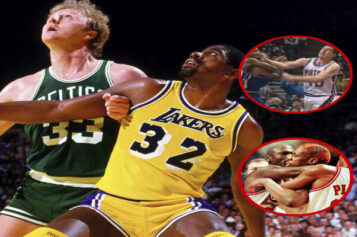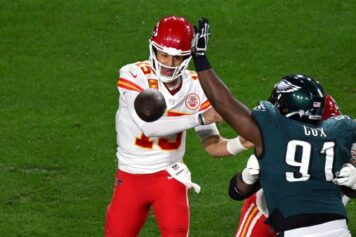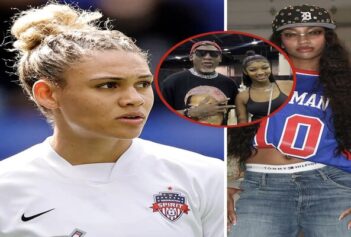Brent Musburger is retiring from the broadcast booth. His last game for ESPN will be the Kentucky vs Georgia men’s basketball game on January 31st at Rupp Arena, the site of one of his many iconic moments behind the mic back in 1985 when Villanova upset Georgetown in 1985 NCAA men’s basketball championship game.
Throughout his career, he was one of the original members of CBS’ seminal pregame show, The NFL Today, along with covering NBA, MLB, NCAA football and basketball games, in addition to NASCAR events.
A former minor league baseball umpire, he got his start in sports media as a writer with Chicago’s American newspaper after studying at Northwestern University’s Medill School of Journalism.
As a teenager and young man, Musburger had his fair share of trouble. When he was 12 years old growing up in Montana, he stole a car with his brother, wilding out like the Billings version of Midget in New Jersey Drive. His automotive fascination and problems followed him to Northwestern, where he was expelled for a year for owning and driving a car, despite the fact that he didn’t have a license.
In 1968, he began working for local CBS affiliates in radio and television, making the jump to the big time in 1973 when he assumed play-by-play duties for CBS Sports. By the late ’70s, he was a welcome guest in my living room on Sunday mornings as the host of the network’s NFL Today show.
Watching him talk about football along with co-hosts Irv Cross and Phyllis George planted a seed inside of me and got me thinking that one day I might be able to parlay my unhealthy obsession with sports into an actual job.
I can still hear his call of Doug Flutie’s “Hail Mary” pass that beat Miami for Boston College in 1984. It seemed like whenever he rocked the mic, he made the games seem immense and meaningful.
“Brent made every event feel larger,” said Stephanie Druley, ESPN senior vice president for events and studio production. “To me, there is probably not a greater storyteller as a play-by-play person. He can spin a yarn like nobody else and it made games definitely more enjoyable to watch.”
He seemed like a great guy to sit across from and talk sports.
In his later years, he looked to have some creepy-old-man tendencies as he insisted on pointing out pretty young ladies in the crowds in ways that bordered on being inappropriate.
And I still can’t get with his calling John Carlos and Tommie Smith “Black-skinned Storm Troopers” after their medal stand protest at the 1968 Mexico City Olympics, and how he vilified them. But it is a reminder of what many people who could not sympathize with the Black struggle felt at the time.
But sandwiched in between those extremes was a legendary career of a man who seemed to have the best job in the world, and it was evident that he enjoyed every minute of it.



